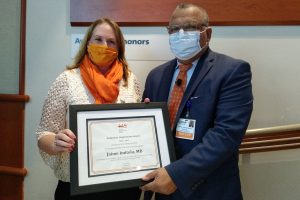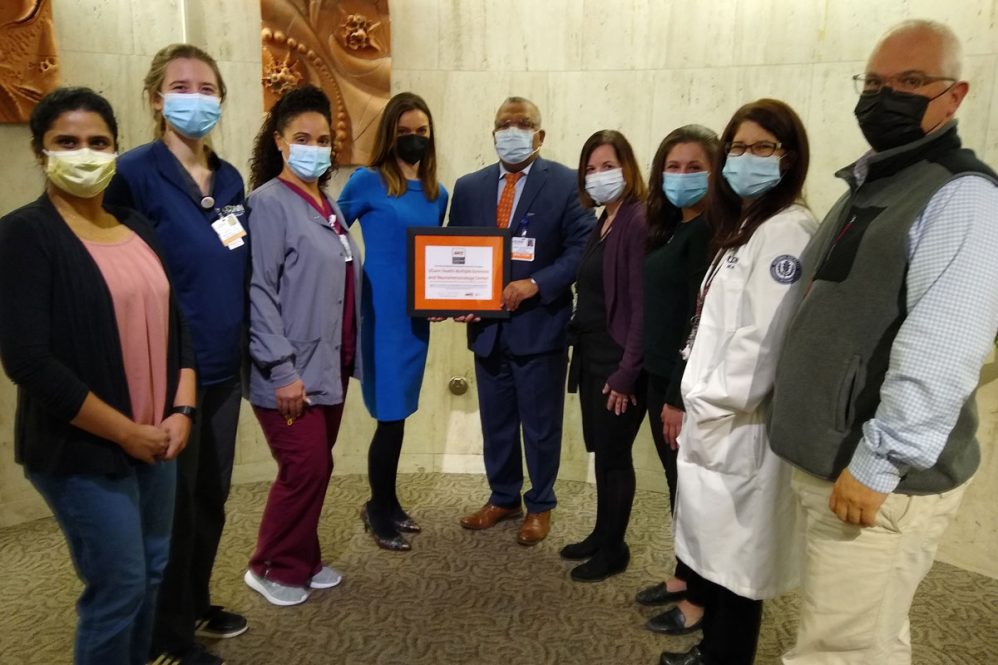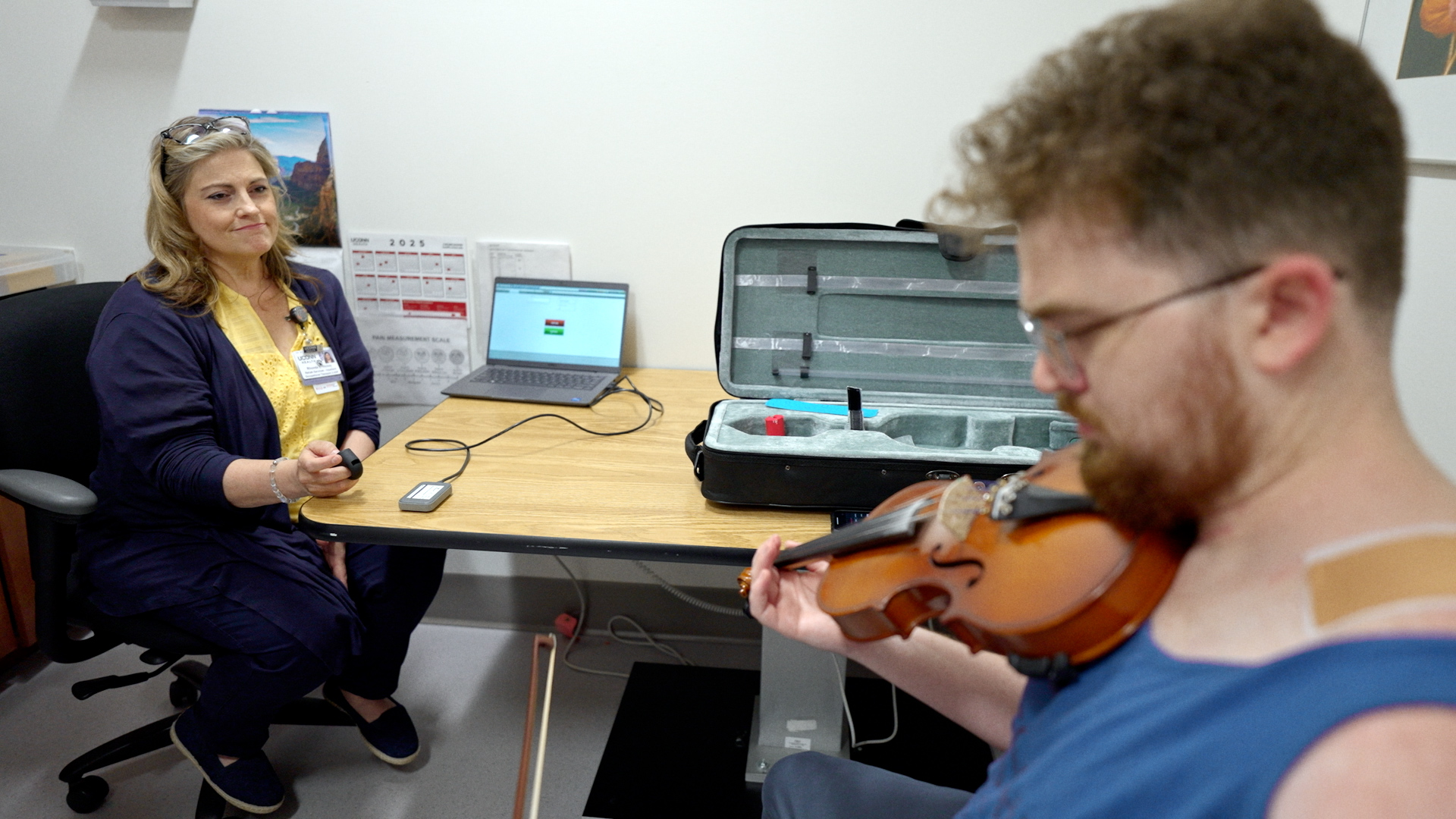UConn Health is among an elite group of health care facilities recognized by the National Multiple Sclerosis Society as having a Center for Comprehensive MS Care.
The honor acknowledges the UConn Health Multiple Sclerosis and Neuroimmunology Center for its commitment to high-quality care and wealth of knowledge, experience, and attention to detail in treating people living with MS.
We care for a vulnerable and diverse population of patients who often face additional challenges beyond their disease, such as socio-economic, access to care, and multiple comorbidities. — Dr. Jaime Imitola
“We are proud to partner with Dr. Imitola and the entire MS Center clinic team to enhance high-quality, dedicated care for people in Connecticut living with MS,” says National MS Society Connecticut-Rhode Island Chapter President Marcia Maslo. “In earning this recognition, UConn Health’s MS and Neuroimmunology Center has demonstrated extraordinary leadership in MS care and joins the ranks of outstanding MS Centers impacting the lives of the nearly 1 million people living with MS in this country.”
Maslo and other representatives from the National MS Society formally presented the distinction to Dr. Jaime Imitola, director of UConn Health’s Division of Multiple Sclerosis and Translational Neuroimmunology, and his team last week.
“This certainly is a prestigious honor, and it affirms what we’ve known for several years now, which is, UConn Health’s MS Center is a tremendously valuable public resource,” Imitola says. “We are tackling the most significant unmet needs in MS in our state from clinical care to cutting-edge research. We care for a vulnerable and diverse population of patients who often face additional challenges beyond their disease, such as socio-economic, access to care, and multiple comorbidities. We have an outstanding team of professionals working in collaboration to provide expertise in all disciplines related to comprehensive care of MS, and UConn Health is a leader in this regard.”

Granted by a national committee, the “comprehensive” distinction is reserved for programs that demonstrate coordinated and multidisciplinary care.
Multiple sclerosis is an unpredictable and often disabling disease of the central nervous system. It disrupts the flow of information within the brain between the brain and the rest of the body. The symptoms vary and can include numbness and tingling, walking difficulties, fatigue, dizziness, pain, depression, blindness, and paralysis. Most people with MS are diagnosed between the ages of 20 and 50, with women diagnosed at a rate of three to one compared to men.
The National MS Society provides research funding, advocacy, education, and support.



